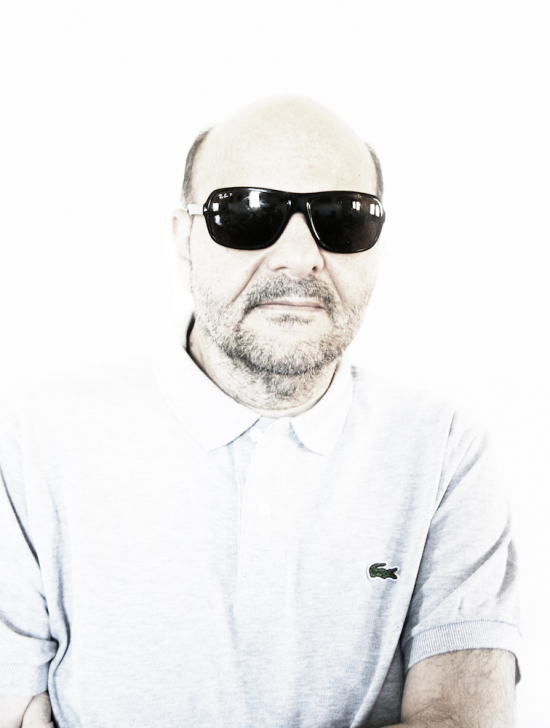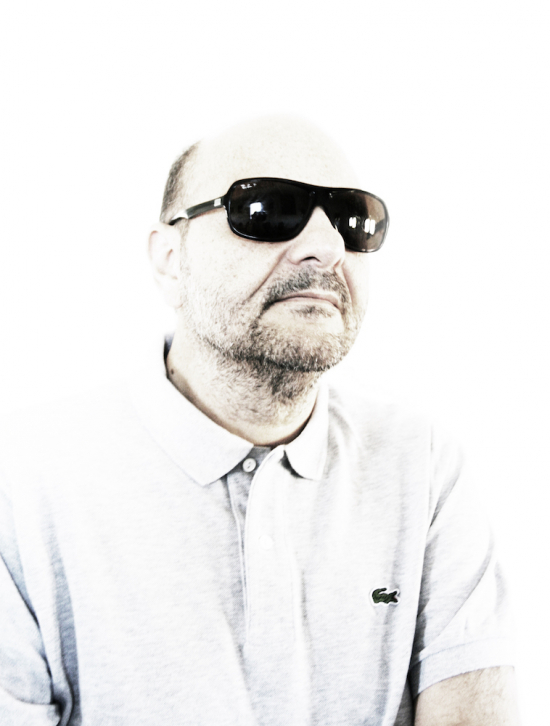A chat with Mario Barbuto, President of the Italian Union of Blind and Partially Sighted People
Bologna, 15 July 2018
There is a world near mine which is far away from the light and the colors, from the elementary daily contemplation of the shapes of this earth and those who inhabit it. A world of people who live in my very same spaces yet explore them not with their sight but with their sense of smell, of touch, of hearing and of taste. It’s a fascinating world, one tha—like everybody— I meet every day. When I get into the lift and I see those small bulging dots next to the call buttons, illegible codes that I cannot understand. When I cross the road and the pedestrian traffic light, turning green, emits those sounds that become more and more frequent as it is about to turn red. Every time I step off the train in the beautiful railway station in Bolonia and I try to figure out where to go by following the yellow lines on the floor next to the grey and red tactile tiles shaping lines that turn and go straight and then turn again every time that I do it.
It’s a ticking presence from which I turn away when I bump into it... it’s a world unknown to me. A world that I explore with curiosity any time I have the opportunity to do it. That’s how on the twenty-eighth of June twenty-eighteen, after waiting for what was necessary, I met Mario Barbuto, National President of UICI, Unione Italiana dei Ciechi e degli Ipovedenti (Italian Union of Blind and Partially Sighted People), a Union that will celebrate its 100th anniversary in twenty-twenty and that represents more than a million—blind and visually impaired—people in Italy, and which from now on I will only call UNION, in a quite faithful transcription—though with some stylistic license—of what Mr President told me.
With offices in each Italian province, the UNION carries out many activities, starting from PREVENTION, which means both early diagnosis (children and even newborns) and working in schools where, besides routine medical examinations, it is of the utmost importance to spread a culture of prevention and educate people on the protection of sight: a precious, immense resource that we need to protect even more than to cure. Early intervention often means the possibility to save people’s sight. Prevention is also important among elderly people, people in their third and fourth age, who by nature or by chance have to face a—more or less physiological—decreased ability to see. It’s important to make sure that people preserve their vision so that they can be independent in their everyday life, able to do common things. Prevention is important also in common activities and jobs. It is essential to acquire an ability to protect (self-protect) one’s own eyes and to spread this culture in workplaces and places where people practice sports, but also to keep it in mind during the most ordinary, common activities, such as sunbathing.
Prevention and public/citizen information are just the beginning of what the UNION does, as we also take care of those who lost eyesight for good and therefore need to organize their life and their everyday existence taking into account this loss.
We also guarantee and give children the possibility to ATTEND SCHOOL and receive an education just like any other children. The UNION makes sure school books are provided in Braille or large/giant print for partially sighted people. We provide all technological aids such as computers, smartphones, tablets that come with speech synthesis or Braille devices. We work hard to make sure that public intervention (from the State, Municipalities or Regions) is fairly addressed to support school, school transports, assistance and after-school activities. Once people reach a certain learning level and acquire specific skills, by earning a diploma or a degree, the UNION takes care of giving them career opportunities so that they can live a normal life, just like everybody else. A job, autonomy and economic independence are the premises for a normal life, one in which you have the possibility—from an ideal and moral perspective—to feel like anybody else and to live under the same conditions of equality and dignity.
As regards employment, some protective laws were promulgated that mandate a priority for blind or partially sighted people to be hired as telephone operators, physiotherapists or teachers. New technologies and an unpredictable labor market, however, don’t make things easy nowadays. It’s our big challenge for the next years (or decades) to make sure that people with an education have the possibility to get a job and therefore to live and feel equal with others.
The UNION is in charge and promoter of LIBRO PARLATO (spoken book), a library of approximately ten thousand titles, classic and modern, available for listening. Recorded by professional speakers who fully read them, these books are available for free download on the website uiciechi.it or can be picked up at any office of the UNION, in every Italian province. There is a regulation that allows people who can’t use books in the usual way to access their contents for free. In the last months it is being discussed how to implement an EU directive that establishes, in an official, controlled way, the exemption from copyright and the right to freely distribute texts to people that cannot, due to physical conditions or sensory limitations, make use of normal books.
Part of the UNION is also SLASH RADIO WEB, which addresses everybody, but especially its members, with the aim of promoting reading but above all of creating a sense of affinity and familiarity, through live recording and sharing, because one of the worst circumstances that the UNION aims at reducing (or, even better, defeating) is the sense of loneliness and exclusion that blind people feel, a sense of isolation that has to be overcome.
The UNION aims at guaranteeing, if not happiness (the dream of many), at least the right to normal living conditions and that also through ASSISTANCE, thanks to GUIDE DOGS which have to be allowed in public spaces and means of transports. Laws allow guide dogs to go everywhere, but they are not always respected and almost everyday guide dogs are rejected, which means that the people going with them are rejected as well. This is why the UNION is trying to found an agency to safeguard the rights of visually impaired people. Not all visually impaired people, however, can rely only on themselves and their independence: some need to be taken to the doctor, for example, or to the library, or on a little journey; in this regard every office of the UNION makes sure that the demand of visually impaired people matches the supply of volunteers. VOLUNTEERS only have to get in touch with one of our offices, show their availability in terms of time and service, and wait to be called back. The UNION relies on approximately 1000 volunteers a year from civil service.
How does the UNION support itself?
Through self-financing, which means through annual membership fees from real members (blind people) or supporters who contribute with voluntary fees but who, above all, often contribute by hiring blind people or volunteering, for example in assistance. With fundraising activities, which means activities of information or specific services in order to raise awareness among people and communities, making them support events through small and big donations. And also through business interventions—small and bigger companies that support chosen projects.
I cannot but end stating that UNITED we stand!

